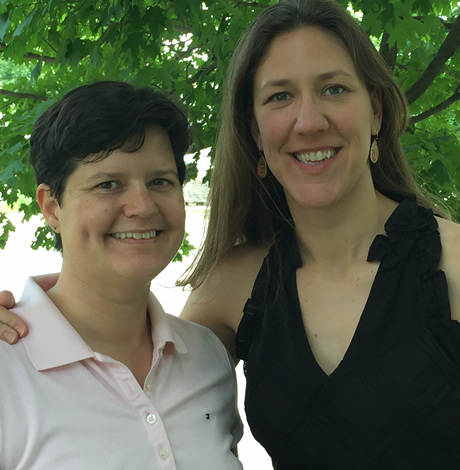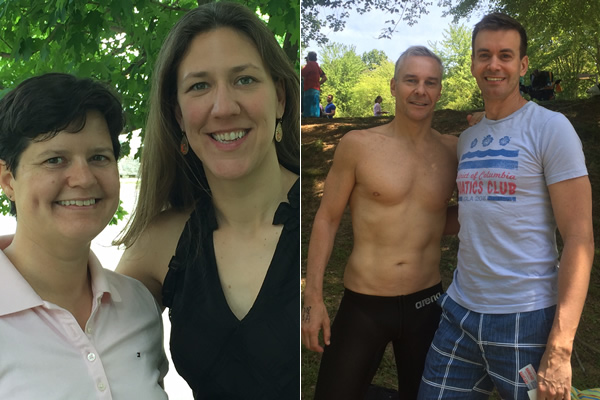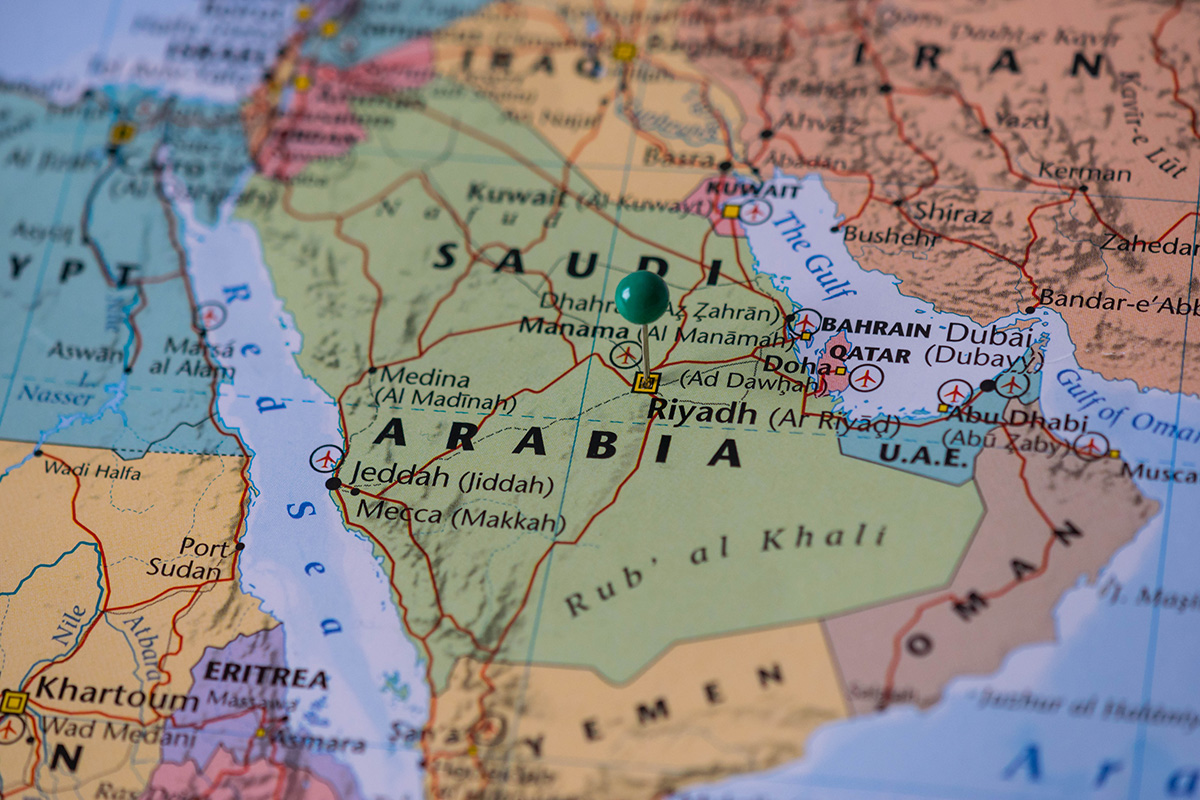Sports
Meet 2 couples sharing their lives and a love of sports
Rowing, swimming offer friendly competition and a common bond


On left, Sheila and Gretchen O’Sullivan are members of the DC Strokes Rowing Club. On right, Fred Dever and Eric Czander met on the DC Aquatics team. (Photos courtesy of the couples)
Many of the LGBT sports teams in D.C. count same-sex couples as members of their clubs. Some joined the team together and others became a couple after first being teammates.
Meet two LGBT couples who have woven sports into the lives they are sharing. Not only are they benefitting their own health and well-being, they are sharing it with their partner.
Sheila O’Sullivan grew up in Novi, Mich., where soccer was her sport of choice. She attended high school in England and added rowing as her spring sport.
Back in the States, she graduated from the Coast Guard Academy in Connecticut in 2000. She coached rowing on Sammamish Lake in Washington before heading to grad school at Carnegie Mellon University.
Canonsburg, Pa. was home to Gretchen O’Sullivan where she played softball and tennis in high school. She attended Allegheny College and was a member of the orchestra. A stint with AmeriCorps was followed by grad school at Carnegie Mellon.
The pair became a couple after meeting at grad school in Pittsburgh. Sheila would graduate first in 2007 and leave to work with the Peace Corps before moving to D.C. in 2009 where she joined the club program of the DC Strokes Rowing Club.
“After she left I joined the learn to row program with Three Rivers Rowing in Pittsburgh,” says Gretchen. “It was all because of Sheila. I never would have thought of rowing otherwise.”
Gretchen came to D.C. the following year and started with the DC Strokes novice program. She eventually joined Sheila in the club program and they often ended up in the same boat.
“She would get frustrated with me, but the overall experience was great,” says Sheila. “It’s great being outside and working as a team. We met our core group of friends with the Strokes and even if we are not rowing, they remain in our lives.”
“She was only trying to help me when we were in a boat together, but it was sometimes stressful,” Gretchen says. “Otherwise it was wonderful and there was great energy. Our drives back and forth to practice were always fun.”
Life started getting in the way for the pair and they began swapping rowing seasons to be supportive of who had the time to row. There was work, a new puppy, a new house, and they got married in the spring of 2013.
Both were competing in regattas – Sheila moved up to the competitive program and rowed at Stonewall, Charm City Sprints and the Head of the Hooch in Tennessee; Gretchen at the 2014 Gay Games in Cleveland where she won medals of each color.
Gretchen was trying to get pregnant in 2015 which meant that it was Sheila’s turn to row again. Their baby was born in late 2016 and Sheila started training for a new job with the Park Police. Gretchen is working as a site coordinator with a national nonprofit. Both are currently not rowing but are itching to get back in the boat.
“I really wanted to stay involved, so I am serving on the DC Strokes board as secretary,” says Gretchen. “Rowing is really for everyone and you can adapt it to your own needs. I would love for her to row again and I also see it for myself on the horizon.”
“I love that it is something you can come back to at any age and I am inspired by rowers that are older,” Sheila says. “Rowing is a passion of mine and it will be a lifetime sport for me.”
Syracuse, N.Y. native Fred Dever grew up competing in swimming and water polo through high school. He was an NCAA Division I swimmer at Marist College for four years and captained in his final year. On the side, he lifeguarded and coached swimming and water polo.
His work in pharmaceutical sales brought him to D.C. in 1995 and he was reluctant to join DC Aquatics Club because he didn’t think a gay team would be serious.
“I joined the team in 2002 and it was great getting back into organized workouts and making new friends,” says Fred. “It’s super rewarding, competitive, and everything you can wish for as a gay athlete.”
Eric Czander started swimming year around at age nine while growing up in Westfield, N.J. He swam for four years as an NCAA Division I athlete at Vanderbilt University. His education continued at Rutgers New Jersey Medical School and Emory University School of Medicine for his Neurology residency.
He signed on for five years in the Navy hoping that the military lifestyle would prevent him from coming out. Before his duty began, he joined masters swimming and helped form a gay team in Atlanta where he came out in 1993. His last two years in the military brought him to D.C. where he joined DC Aquatics in 1998.
Fred and Eric met on the team and have spent the last 16 years sharing their lives with a healthy dose of swimming, triathlons and running.
“It helps with motivation to have someone to go to practice with and just having someone by your side,” says Eric. “It’s nice to be able to bounce things off each other. We are each other’s biggest motivator and biggest critic.”
“I like the way it feels having sports in our lives,” Fred says. “I would be a slacker if it wasn’t for Eric. He is much more driven than I am.”
Fred and Eric are the same age and compete in the same age group in swimming, though not in the same events. They are also of the same ability and purposefully don’t train in the same lane at practice.
“There is a little competitiveness in practice even though we don’t swim the same events,” Eric says. “Never harmful though, always healthy. Both of us have grown and learned from each other.”
“Sometimes I just want my own space, so I can be silly with our other teammates,” adds Fred.
In addition to competitive swimming, Fred and Eric have also completed running marathons and triathlons together. Eric had been competing in them for years before meeting Fred and brought him into the sports.
“My first marathon in D.C. was cancelled and Eric pushed me to run the St. Louis Marathon,” says Fred. “We always make sure the other one is safe in our races. Someone died in a recent open water race we were in and I ended up in the medical tent at the Boston Marathon. Each race starts with “I love you, be safe.”’
“When he started doing road running and triathlons, I was beating him at first and then he started beating me,” says Eric. “We try not to race next to each other, but our times are very similar. It’s good motivation.”
Coming up for the pair is a trip to Paris for Gay Games X in August where they both will be swimming eight events in the pool.
“Swimming is all about family and connections,” Fred says. “Our DC Aquatics teammates are our family.”
“It’s awesome to explore new cities and cultures together,” Eric says. “Plus, I can’t wait for Fred to butcher the French language.”
India
Anaya Bangar challenges ban on trans women in female cricket teams
Former Indian cricketer Sanjay Bangar’s daughter has received support

Anaya Bangar, the daughter of former Indian cricketer Sanjay Bangar, has partnered with the Manchester Metropolitan University Institute of Sport in the U.K. to assess her physiological profile following her gender-affirming surgery and undergoing hormone replacement therapy.
From January to March 2025, the 23-year-old underwent an eight-week research project that measured her glucose levels, oxygen uptake, muscle mass, strength, and endurance after extensive training.
The results, shared via Instagram, revealed her metrics align with those of cisgender female athletes, positioning her as eligible for women’s cricket under current scientific standards. Bangar’s findings challenge the International Cricket Council’s 2023 ban on transgender athletes in women’s cricket, prompting her to call for a science-based dialogue with the Board of Control for Cricket in India and the ICC to reform policies for trans inclusion.
“I am talking with scientific evidence in my hand,” Bangar said in an interview posted to her Instagram page. “So, I hope, this makes an impact and I will be hoping to BCCI and ICC talking with me and discussing this further.”
On Nov. 21, 2023, the ICC enacted a controversial policy barring trans women from international women’s cricket. Finalized after a board meeting in Ahmedabad, India, the regulation prohibits any trans player who has experienced male puberty from competing, irrespective of gender-affirming surgery or hormone therapy. Developed through a 9-month consultation led by the ICC’s Medical Advisory Committee, the rule aims to safeguard the “integrity, safety, and fairness” of women’s cricket but has drawn criticism for excluding athletes like Canada’s Danielle McGahey, the first trans woman to play internationally. The policy, which allows domestic boards to set their own rules, is slated for review by November 2025.
Bangar shared a document on social media verifying her participation in a physiological study at the Manchester Metropolitan University Institute of Sport, conducted from Jan. 20 to March 3, 2025, focused on cricket performance. The report confirmed that her vital metrics — including hemoglobin, blood glucose, peak power, and mean power — aligned with those of cisgender female athletes. Initially, her fasting blood glucose measured 6.1 mmol/L, slightly above the typical non-diabetic range of 4.0–5.9 mmol/L, but subsequent tests showed it normalized, reinforcing the study’s findings that her physical profile meets female athletic standards.
“I am submitting this to the BCCI and ICC, with full transparency and hope,” said Bangar. “My only intention is to start a conversation based on facts not fear. To build space, not divide it.”
In a letter to the BCCI and the ICC, Bangar emphasized her test results from the Manchester Metropolitan University study. She explained that the research aimed to assess how hormone therapy had influenced her strength, stamina, hemoglobin, glucose levels, and overall performance, benchmarked directly against cisgender female athletic standards.
Bangar’s letter to the BCCI and the ICC clarified the Manchester study was not intended as a political statement but as a catalyst for a science-driven dialogue on fairness and inclusion in cricket. She emphasized the importance of prioritizing empirical data over assumptions to shape equitable policies for trans athletes in the sport.
Bangar urged the BCCI, the world’s most influential cricket authority, to initiate a formal dialogue on trans women’s inclusion in women’s cricket, rooted in medical science, performance metrics, and ethical fairness. She called for the exploration of eligibility pathways based on sport-specific criteria, such as hemoglobin thresholds, testosterone suppression timelines, and standardized performance testing. Additionally, she advocated for collaboration with experts, athletes, and legal advisors to develop policies that balance inclusivity with competitive integrity.
“I am releasing my report and story publicly not for sympathy, but for truth. Because inclusion does not mean ignoring fairness, it means measuring it, transparently and responsibly,” said Bangar in a letter to the BCCI. “I would deeply appreciate the opportunity to meet with you or a representative of the BCCI or ICC to present my findings, discuss possible policy pathways, and work towards a future where every athlete is evaluated based on real data, not outdated perceptions.”
Before her transition, Bangar competed for Islam Gymkhana in Mumbai and Hinckley Cricket Club in the U.K., showcasing her talent in domestic cricket circuits. Her father, Sanjay Bangar, was a dependable all-rounder for the Indian national cricket team from 2001 to 2004, playing 12 test matches and 15 One Day Internationals. He later served as a batting coach for the Indian team from 2014 to 2019, contributing to its strategic development.
Cricket in India is a cultural phenomenon, commanding a fanbase of more than 1 billion, with more than 80 percent of global cricket viewership originating from the country.
The International Cricket Council, the sport’s governing body, oversees 12 full member nations and more than 90 associate members, with the U.S. recently gaining associate member status in 2019 and co-hosting the 2024 ICC Men’s T20 World Cup. The BCCI generated approximately $2.25 billion in revenue in the 2023–24 financial year, primarily from the Indian Premier League, bilateral series, and ICC revenue sharing. The ICC earns over $3 billion from media rights in India alone for the 2024–27 cycle, contributing nearly 90 percent of its global media rights revenue, with the BCCI receiving 38.5 percent of the ICC’s annual earnings, approximately $231 million per year.
Women’s cricket in India enjoys a growing fanbase, with over 300 million viewers for the Women’s Premier League in 2024, making it a significant driver of the sport’s global popularity. The International Cricket Council oversees women’s cricket in 12 full member nations and over 90 associate members, with the U.S. fielding a women’s team since gaining associate status in 2019 and competing in ICC events like the 2024 Women’s T20 World Cup qualifiers. The BCCI invests heavily in women’s cricket, allocating approximately $60 million annually to the WPL and domestic programs in 2024–25, while contributing to the ICC’s $20 million budget for women’s cricket development globally. India’s media market for women’s cricket, including WPL broadcasting rights, generated $120 million in 2024, accounting for over 50 percent of the ICC’s women’s cricket media revenue.
“As a woman, I feel when someone says that they are women, then they are, be trans or cis. A trans woman is definitely the same as a cis woman emotionally and in vitals, and specially, when someone is on hormone replacement therapy. Stopping Anaya Bangar from playing is discrimination and violation of her rights. It is really sad and painful that every trans woman need to fight and prove their identity everywhere,” said Indrani Chakraborty, an LGBTQ rights activist and a mother of a trans woman. “If ICC and BCCI is stopping her from playing for being transgender, then I will say this to be their lack of awareness and of course the social mindsets which deny acceptance.”
Chakraborty told the Blade that Bangar is an asset, no matter what. She said that the women’s cricket team will only benefit by participation, but the discriminating policies are the hindrance.
“Actually the transgender community face such discrimination in every sphere. In spite of being potent, they face rejection. This is highly inhuman. These attitudes is regressive and will never let to prosper. Are we really in 2025?,” said Chakraborty. “We, our mindset and the society are the issues. We, as a whole, need to get aware and have to come together for getting justice for Anaya. If today, we remain silent, the entire community will be oppressed. Proper knowledge of gender issues need to be understood.”
The BCCI and the International Cricket Council have not responded to the Blade’s repeated requests for comment.
Sports
English soccer bans transgender women from women’s teams
British Supreme Court last month ruled legal definition of woman limited to ‘biological women’

The organization that governs English soccer on Thursday announced it will no longer allow transgender women to play on women’s teams.
The British Supreme Court on April 16 ruled the legal definition of a woman is limited to “biological women” and does not include trans women. The Football Association’s announcement, which cites the ruling, notes its new policy will take effect on June 1.
“As the governing body of the national sport, our role is to make football accessible to as many people as possible, operating within the law and international football policy defined by UEFA (Union of European Football Associations) and FIFA,” said the Football Association in a statement that announced the policy change. “Our current policy, which allows transgender women to participate in the women’s game, was based on this principle and supported by expert legal advice.”
“This is a complex subject, and our position has always been that if there was a material change in law, science, or the operation of the policy in grassroots football then we would review it and change it if necessary,” added the Football Association.
The Football Association also acknowledged the new policy “will be difficult for people who simply want to play the game they love in the gender by which they identify.”
“We are contacting the registered transgender women currently playing to explain the changes and how they can continue to stay involved in the game,” it said.
The Football Association told the BBC there were “fewer than 30 transgender women registered among millions of amateur players” and there are “no registered transgender women in the professional game” in England, Scotland, Wales, and Northern Ireland.
The Scottish Football Association, which governs soccer in Scotland, is expected to also ban trans women from women’s teams.

FIFA has announced Saudi Arabia will host the 2034 World Cup, despite concerns over its human rights record that includes the death penalty for homosexuality.
The Associated Press reported FIFA confirmed the decision on Dec. 18. The AP noted Saudi Arabia is the only country that bid to host the 2034 World Cup.
“This is a historic moment for Saudi Arabia and a dream come true for all our 32 million people who simply love the game,” said Sport Minister Prince Abdulaziz bin Turki Al- Faisal, who is also president of the Saudi Olympic and Paralympic Committee, in a statement the Saudi Press Agency posted to its website.
Saudi Arabia is among the handful of countries in which consensual same-sex sexual relations remain punishable by death.
A U.S. intelligence report concluded Saudi Crown Prince Mohammed bin Salman “likely approved” the murder of Jamal Khashoggi, a Washington Post columnist, inside the Saudi Consulate in Istanbul in 2018. A federal judge in 2022 dismissed a lawsuit against Prince Mohammed after the Biden-Harris administration said he was immune to the lawsuit because he is the country’s prime minister.
Human rights activists have also criticized the Saudi government over the treatment of women, migrant workers, and other groups in the country.
“No one should be surprised by this,” Cyd Zeigler, Jr., co-founder of Outsports.com, an LGBTQ sports website, told the Washington Blade in an email after FIFA confirmed Saudi Arabia will host the 2034 World Cup. “FIFA, the International Olympic Committee, and many other world governing bodies routinely turn to authoritarian countries with terrible human-rights records to host major sporting events. There are simply few other countries willing to spend the billions of dollars it takes to build the needed infrastructure.”
Peter Tatchell, a long-time LGBTQ activist from the U.K. who is director of the Peter Tatchell Foundation, in a statement described FIFA’s decision as “a betrayal of the values that football should stand for: Inclusivity, fairness, and respect for human rights.”
“This is not about football; it’s about sportswashing,” said Tatchell. “The Saudi regime is using the World Cup to launder its international image and distract from its brutal abuses. By granting them this platform, FIFA is complicit in whitewashing their crimes.”
Qatar, which borders Saudi Arabia, hosted the 2022 World Cup.
Consensual same-sex sexual relations remain criminalized in Qatar.
“Saudi Arabia was the only country to bid for the 2034 FIFA World Cup,” said Zeigler. “So, until FIFA, the IOC (International Olympic Committee) and other governing bodies ban major human-rights violators from hosting, we’ll continue to see events like this in Saudi Arabia, China, Qatar, and other countries with terrible LGBTQ rights issues.”
The Blade has reached out to FIFA and the Saudi government for comment.




















